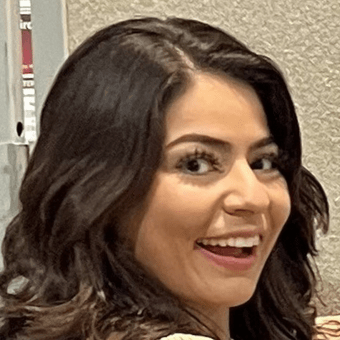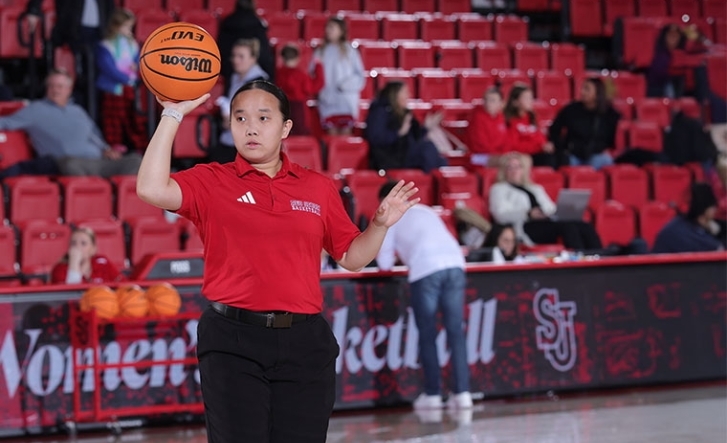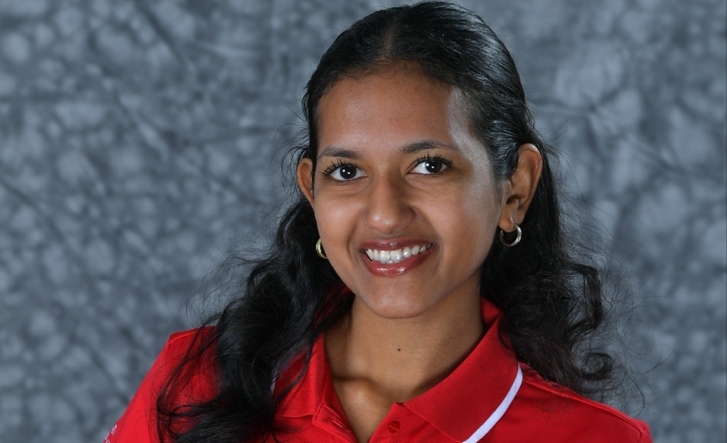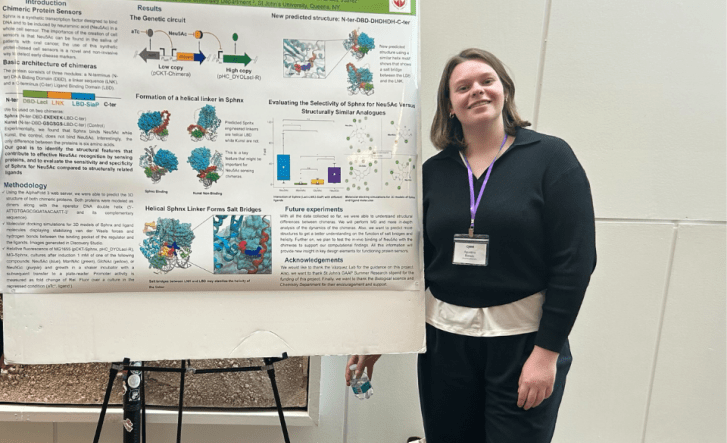Pharmacy Student Presents Research at Leading Infectious Diseases Conference
As a doctoral candidate at St. John’s University’s College of Pharmacy and Health Sciences, Angela Basir was honored to be selected to present a research project to the largest gathering of infectious disease specialists in the country during the fall semester.

From L-R: Yumi Lee, Pharm.D., Associate Clinical Professor, Angela Basir, and Nicole A. Bradley, Pharm. D., Assistant Clinical Professor.
“That’s what you get into research for—to make an impact.”
Approximately 2,000 research projects were presented at IDWeek 2022, the joint annual meeting of the Infectious Diseases Society of America, Society for Healthcare Epidemiology of America, the HIV Medicine Association, Pediatric Infectious Diseases Society, and the Society of Infectious Diseases Pharmacists. From the chosen presenters, only a handful were students; one was Angela, pictured above, center, whose project will be featured in an upcoming issue of the industry journal Infectious Disease Special Edition.
“That’s what you get into research for—to make an impact,” Angela said. “Many people there were surprised to see a student presenting research. Most of the presenters are medical doctors, medical researchers, or pharmacists. It made me feel proud.”
The daughter of a pulmonologist and the sister of a prospective medical student, from her teenage years Angela was drawn to a career in the health care industry. She initially considered St. John’s Physician Assistant Master of Science degree program, but pivoted to the six-year Doctor of Pharmacy program—and never looked back. She graduates in May and has started applying for hospital residencies, where she plans to specialize in infectious-diseases or critical-care pharmacy.
Her presentation at IDWeek in Washington, DC, on the use of the antibiotic fidaxomicin as a first-line therapy for the Clostridioides difficile (C. diff.) infection took months of research and physician and pharmacist interviews. Fidaxomicin is emerging as an alternative to the more established drug vancomycin in the treatment of C. diff., a germ that causes diarrhea and colitis in about a half-million Americans annually, according to the Centers for Disease Control and Prevention (CDC). One in 11 senior citizens worldwide who contract C. diff. die from it, according to the CDC.
Angela discovered that while many health-care centers are enthusiastic about the potential of fidaxomicin, the cost of the drug and its limited availability make them unwilling to commit to it when treating C. diff. patients. Her research was triggered by adjustments to the clinical guidelines for the treatment of C. diff. issued by the Infectious Diseases Society of America that favored fidaxomicin.
“That reluctance will likely change as fidaxomicin becomes more available and cost-effective,” Angela predicted. “Many drugs are costly when they first come to market, but the price eventually comes down and they become more available.”
Transforming Tragedy into Inspiration
Her journey to one of the nation’s most important gatherings of infectious disease experts began when she approached Nicole A. Bradley, Pharm. D., Assistant Clinical Professor, and Yumi Lee, Pharm.D., Associate Clinical Professor, both College of the Pharmacy and Health Sciences, about an elective class. They accepted her into the class and noticed immediately how dedicated Angela was to the subject matter. They later learned that she was excelling while simultaneously caring for her mother, Nuha A. Basir, who died in July from complications associated with chronic obstructive pulmonary disease.
“From the very beginning, I knew Angela was a humble and hardworking student,” Dr. Lee said. “What I didn’t know was that she had so much going on personally. Yet, she never asked for a single accommodation. That shows her character as a student and a person.”
With her mother’s dreams for her as inspiration, Angela continued along the path to her doctorate. She chose fidaxomicin research because of its ability to impact the lives of those enduring C. diff.
While at IDWeek, she met Stuart B. Johnson, M.D., the physician and infectious disease expert who wrote the revised C. diff. treatment guidelines calling for use of fidaxomicin. Dr. Johnson and Angela spoke for several minutes about her research. “It was rare to just meet him on the street,” she recalled. “But he could not have been nicer.”
As the search for a hospital residency continues, Angela has become more aware of the opportunities St. John’s and New York City offered her. She would prefer to stay close to her family’s home in Plainview.
“St. John’s is in the heart of New York City, one of the most diverse places on Earth,” Angela said. “You experience so many different cultures, religions, and backgrounds. It is a beautiful thing.”
Angela's Pathway
Create a Pathway With Your InterestsArea of Interest
Nursing, Pharmacy & Health Sciences

Angela
Plainview, NY
In the Classroom
In the Community
Arab Students Organization



